Projects
These pages will provide briefing on projects related to autonomous ships that NFAS members participate in. This applies to both completed and ongoing projects.
Norwegian projects
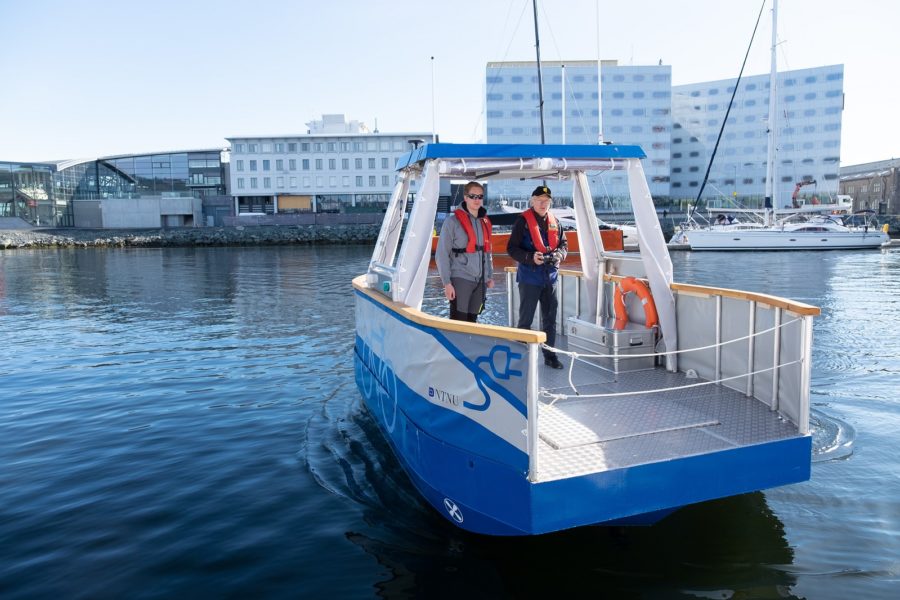
Milli-Ampere: Autonomous passenger ferry
Milli-Ampere is a small autonomous and unmanned passenger ferry that is intended for sue in teh port area of Trondheim. It is an on-demand ferry that is proposed as an alternative to a bridge that would otherwise hinder boat traffic in the area. NTNU is leading the development work.
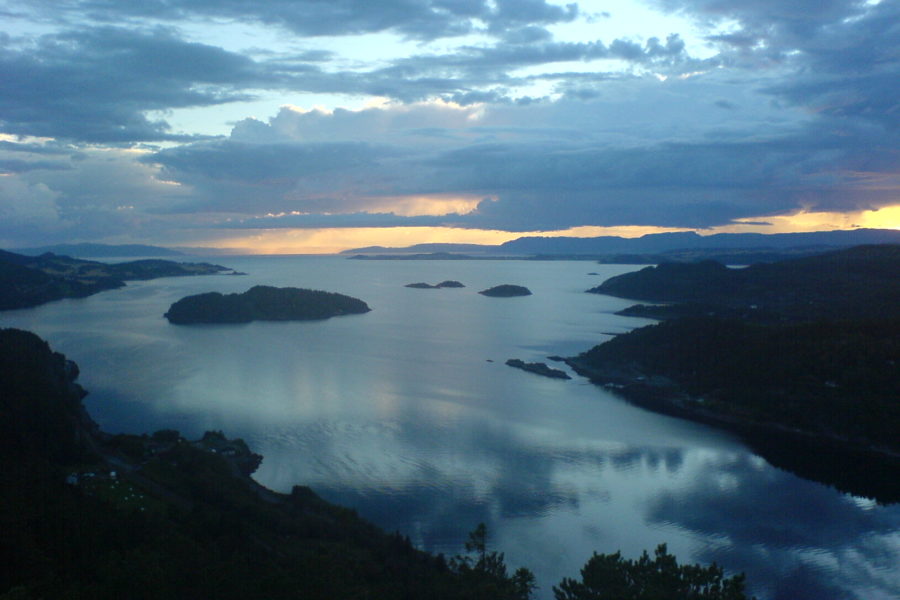
Test area Trondheimsfjorden
Through an agreement between national authorities and the industry and research organizations in the Trondheim region, a partnership has been established to develop Trondheimsfjorden into a test area for autonomous vessels. The agreement was signed aboard the research vessel Gunnerus 30th September 2016. The purpose of the agreement is to facilitate the testing of fully or partly unmanned vessels and to exchange experience and data to facilitate the development and use of such vehicles.
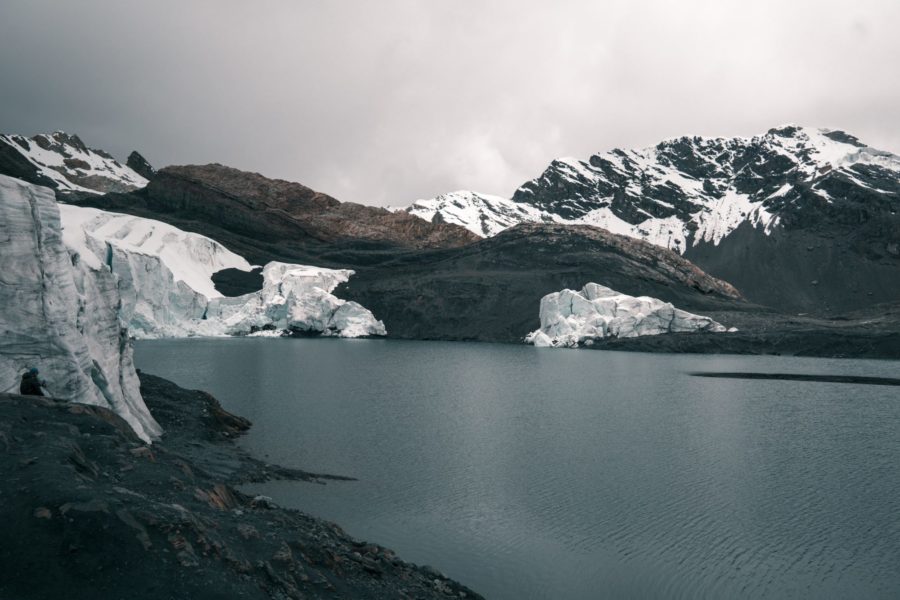
Test area Greenland
In May 2017, the port authorities in the Grenland area applied for test-area status. This area has much more traffic than Trondheim and will in particular be useful to test more developed concepts in heavy traffic environments. The area also includes an VTS which will further add to the usefulness as a test-area. There is also significant maritime industry and research going on in the area and they will get test facilities much closer to home.
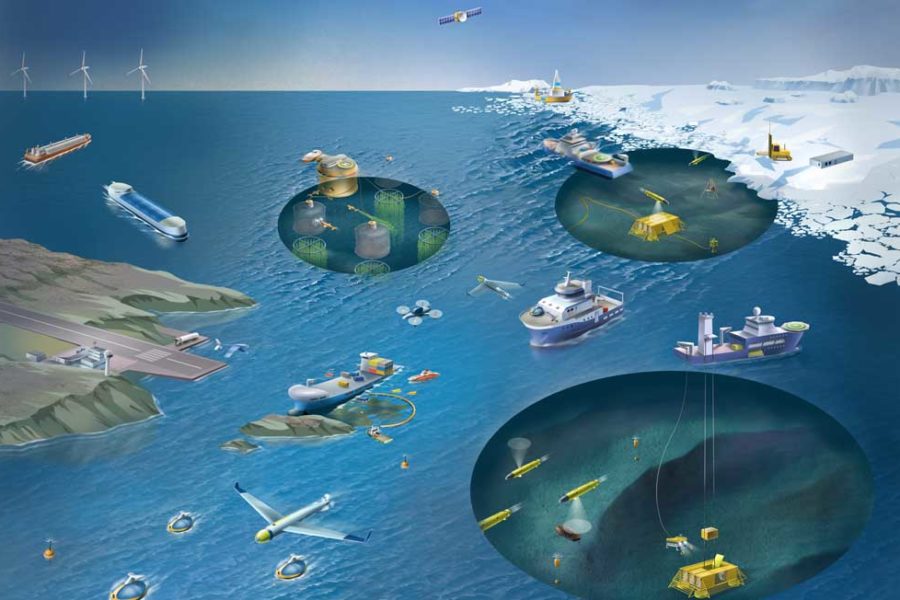
NTNU AMOS – Centre of Excelent Research
NTNU AMOS is a centre of excellence which is led by the NTNU in Trondheim. It has a wide range of partners, many members also of NFAS, and is supported by the Norwegian Research Council. AMOS stands for "Centre for Autonomous Marine Operations and Systems". Here, the future technology is developed while new researchers get their specialization in the subject. AMOS covers all forms of autonomy, on land, in the air, at sea and under the sea.
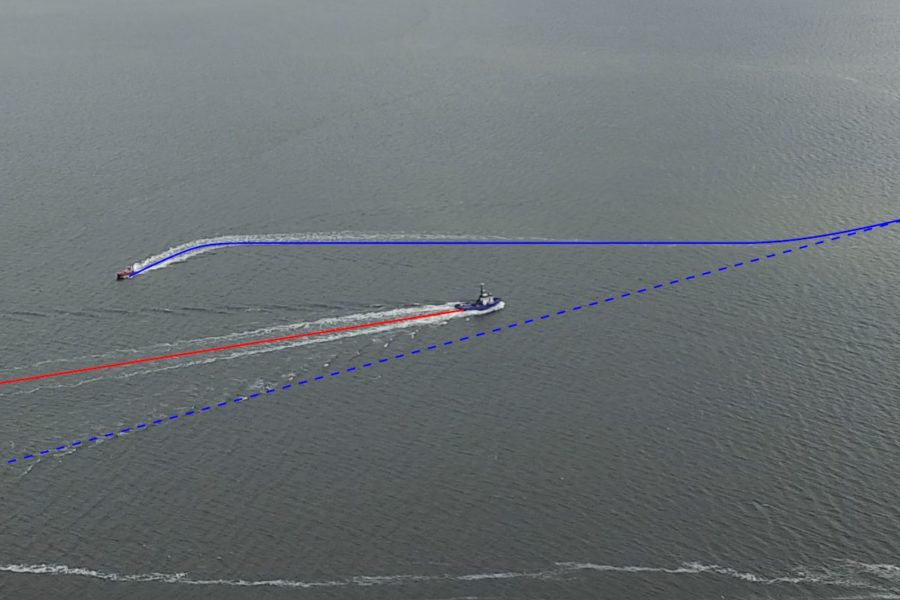
AUTOSEA – Sensor Fusion and collision avoidance for advanced ships
AUTOSEA is a collaboration between NTNU, Kongsberg Maritime, DNV GL and Maritime Robotics to develop technology and knowledge for automated situational awareness for ships. The purpose is as much to improve sensors and decision support aboard conventional ships as to develop new systems for autonomous vessel.
- « Previous
- 1
- 2
EU projects with NFAS participation
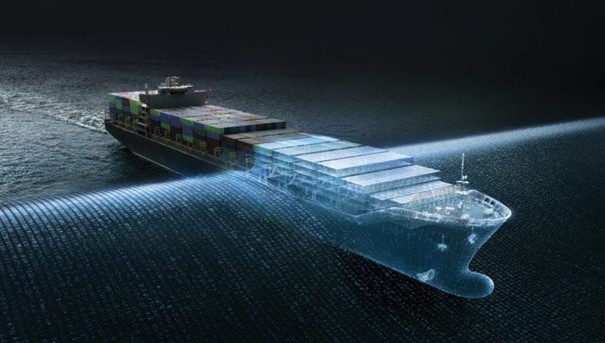
Vessel AI
The VesselAI project will develop a data platform that is capable of processing large amounts of data from various sources in the maritime value chain using artificial intelligence. This will be useful in the work of building digital twins, digital copies of a physical object found in the real world to simulate and predict the vessel's behavior in different scenarios in the ocean space.
The research project is part of the EU program Horizon 2020, and 13 European partners collaborate on research and roll-out of big data analysis, artificial intelligence, and high performance (High Performance Computing) for the maritime sector.
The project has a total budget of 6 million Euros and runs from 2021 - 2023.
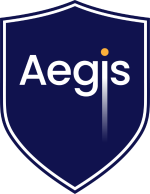
7.5 million Euro to autonomous ships and ports
Inland and short sea ships and their ports is a critical part of Europe's transport system. With stricter requirements on decarbonization and reduced noise and pollution from the transport sector, the importance should only increase! However, the convenience and flexibility of road transport still tend to trumph the sustainability goals. The AEGIS project has been selected by the EU Commission to show that autonomous ships and automation in ports can make waterborne transport much more flexible and user oriented, while continuing to reduce the societal and environmental impact of EU transport. This will be the Advanced, Efficient and Green Intermodal Systems - AEGIS.

20 million Euro to autonomous ship demonstrator
AUTOSHIP - Autonomous Shipping Initiative for European Waters - aims at speeding-up the transition towards a next generation of autonomous ships in EU. The project will build and operate 2 different autonomous vessels, demonstrating their operative capabilities in Short Sea Shipping and Inland Water Ways scenarios, with a focus on goods mobility.
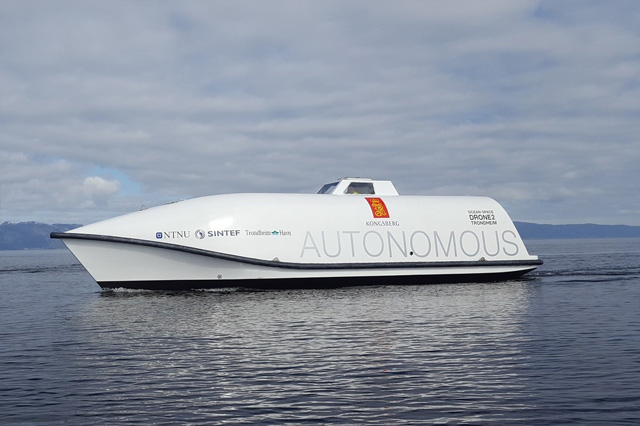
Enable Autonomous Navigation in Close Proximity
KONGSBERG Coordinates EU-Funded Project to Enable Autonomous Navigation in Close Proximity. 'Hull to Hull' (H2H) established to develop digital twin technology combining GNSS with 3D modelling for navigation support and autonomy controller input.

MUNIN – Concept study for unmanned bulk ship
MUNIN was an EU project that ran from summer 2012 to summer 2015. The purpose was to do a concept study for a completely unmanned Handymax bulk carrier. The project came right at the start of the great interest that autonomous ship later created, and has published a number of articles and open reports. MARINTEK (now SINTEF Ocean) was technical coordinator of MUNIN.
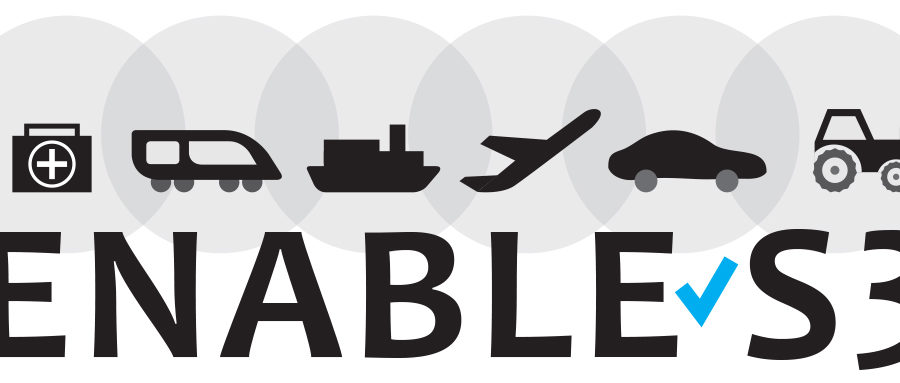
ENABLE*3 Shore based bridge concept
NAVTOR is the only Norwegian industrial partner in the ENABLE*3 project and is owner of the maritime demonstrator. This demonstrator will explore new, advanced simulation and testing opportunities in the maritime industry through close dialogue and cooperation with partners from the automotive industry in Europe. Methods, processes, references and virtual test benches utilized in the automotive industry are to be adapted to the maritime sector, and the results will be demonstrated and evaluated. Focus will be on knowledge transfer from especially the automotive industry: Early, systematic simulation, testing and validation. This also means looking at the possibility of new types of approval procedures for navigation systems based on scenario simulation adapted from the automotive industry.
Other international projects
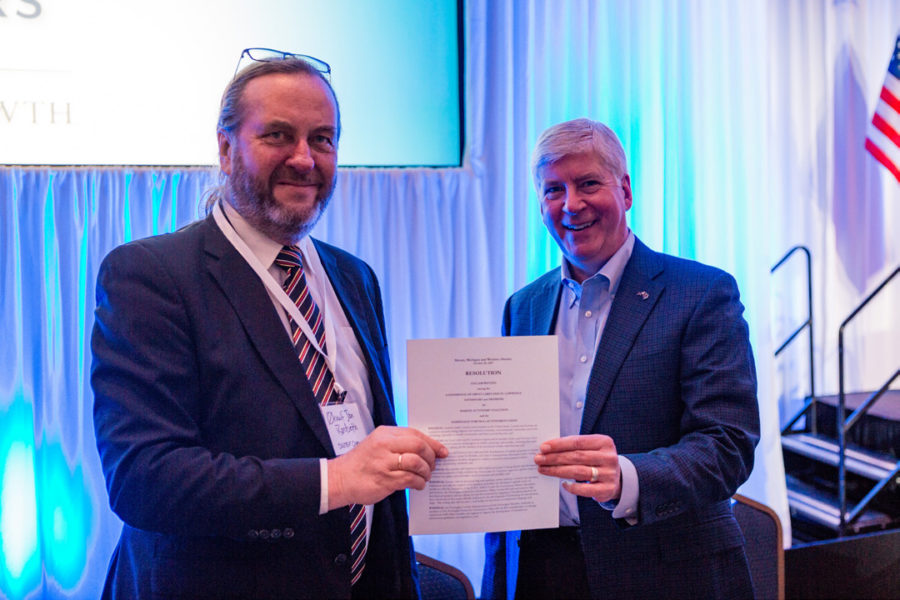
Signing MoU between Smart Ship Coalition and NFAS
At October 21st 2017, the governor of Michigan, Rick Snyder, and the general manager of NFAS, Ørnulf Jan Rødseth, signed a Memorandum of Understanding (MoU) for exchange of information and non-competitive cooperation on smart ship technology and autonomous ships. This is part of an international network of organisations working on unmanned ship technology that is under establishmbent. The "Smart Ship Coalition" covers organisations in the Great Lakes region both in USA and Canada. More information can be found in their December 2017 newsletter.